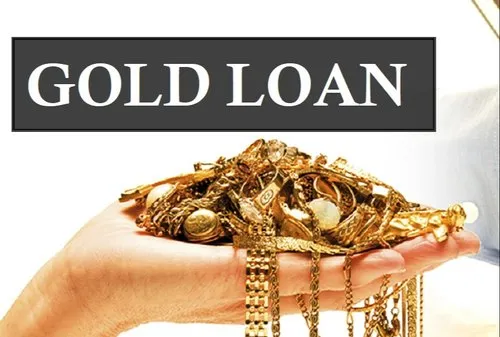Gold loans typically have a short gold loan repayment duration of no more than five years. Loans of this kind often have a period of a year or less. The vast majority of loan companies do not have prepayment penalties or minimum lock-in periods.
In order to settle a gold loan, the borrower must return the precious metal pledged as security and pay off any accrued interest and/or fees. As soon as the last principal and interest payment is received into the borrower’s gold loan account, the loan is deemed paid in full.
Possibilities besides gold bullion for repaying a debt
There are options for reducing debt that really work. If borrowers don’t repay their gold loans by the due date, their properties will be repossessed. You may make amends in a variety of ways, including:
Interference from electromagnetic radiation, which is always occurring:
Most people in need of a gold loan will use this method. These instalments, often known as equivalent monthly instalments (EMI), cover both interest and principal.
Periodic payments of principal and interest will be paid:
In this plan, interest alone is paid regularly until the maturity date, when the whole loan balance is due. This repayment plan offers borrowers the possibility of saving money by spreading the principal payment out throughout the life of the loan rather than making one big payment at the end of the term.
Contracted payments
Even with an EMI plan, some loan providers may accept full or partial payments of interest and principal. Using this kind of repayment may minimise the amount of serviceable interest owed if the principal is paid before the whole interest amount.
Retaliation for a bullet
The term “bullet payback” is used to describe a simple method of paying back a loan in which the whole balance, including interest accrued, is due at the conclusion of the loan period. At the end of the term, you must pay both the principal and the interest that has accumulated over the month. Clearly, EMIs are not significant for paying off a gold loan.
A borrower’s ability to make a loan payment on time may be adversely affected by unforeseen circumstances. No credit checks are performed on applicants for gold loans; but, loan default might negatively impact a borrower’s credit. The following are some things that would-be borrowers of gold loans should remember to
minimise any shocks to a minimum
- Because the APR decreases dramatically with larger loan amounts, borrowers should only apply for the exact amount they need.
- If your loan’s interest gold loan rate or conditions have changed for the worse, you may be eligible to refinance. Borrowers are responsible for estimating the whole cost of any refinancing, including all fees and interest rates.
- Borrowers who are financially strapped may choose to consider the bullet repayment plan.
- After the loan term ends, the gold collateral is returned to the lending institution along with an acknowledgment from the borrower.
- But if they stop making their payments, what then? The potential outcomes of delaying debt repayment are discussed below.
Reminders
Numerous emails, phone calls, and letters will be sent or received by the borrower from the lender in an effort to keep the borrower on track with their repayment schedule. These letters include all the details about the repayment of the gold loan tenure and the implications of nonpayment.
Penalty
The interest rate may increase by 1% to 7% to account for the delay in payment. Late penalties for repaying a gold loan increase both in proportion to the size of the loan and to its duration. This interest rate is much higher than the market rate for gold loans.
Auction
If the borrower does not repay the loan, the lender might try to recuperate part of their losses by selling the collateral or holding an auction. Before an auction takes place, lenders often inform borrowers of the date, time, and location.
Any cash remaining after paying off the debt will be paid into the borrower’s account within 30 days after the auction. However, the bank may pursue collection action if the amount is insufficient.
What consequences does the borrower face in the event of a missing payment?
Defaults may be reported to credit bureaus by lenders. The status of the defaulter is subsequently relayed to the other creditors.
As a result, the borrower may have trouble having his next loan approved. Even if the borrower is granted a line of credit in the future, the interest rate may be higher.
Unpredictable events might have a negative impact on a borrower’s capacity to make gold loan repayment. In the case of gold loans, applicants are not subjected to credit checks; nonetheless, a default on a loan might have a negative influence on the borrower’s credit.











cialis 20mg pill levitra vs cialis erection pills that work
buy duricef buy finasteride 1mg online purchase propecia for sale
purchase fluconazole generic ciprofloxacin 1000mg uk buy cipro 500mg pill
order estrace 2mg without prescription buy minipress 2mg for sale cost prazosin
generic metronidazole order bactrim 960mg generic order keflex 250mg sale
vermox 100mg canada order generic tadalafil tadalafil 10mg pills
buy generic indomethacin 75mg buy indocin generic cefixime 100mg us
where can i buy tamoxifen tamoxifen pill where to buy cefuroxime without a prescription
careprost tablet bimatoprost oral desyrel 50mg sale
cheap catapres catapres us brand spiriva 9 mcg
sildenafil pills buy sildenafil pills sildenafil 25mg price
minocycline 50mg capsules purchase pioglitazone order actos online
order arava 10mg sale sulfasalazine 500mg generic purchase sulfasalazine pill
order isotretinoin 10mg azithromycin 250mg us zithromax online order
tadalafil 40mg sale viagra 100mg oral tadalafil usa
azithromycin 500mg us buy omnacortil pills for sale order generic neurontin
ivermectin lotion price male ed drugs prednisone online order
brand furosemide 40mg buy cheap generic furosemide albuterol buy online
order vardenafil sale oral levitra 10mg buy hydroxychloroquine tablets
order altace 10mg online order etoricoxib without prescription buy cheap generic arcoxia
levitra for sale purchase tizanidine generic order hydroxychloroquine 200mg pill
order asacol 400mg online avapro 150mg drug purchase avapro generic
benicar online order buy benicar depakote generic
temovate brand order buspirone 5mg amiodarone 200mg ca
diamox 250mg tablet order diamox 250 mg generic buy generic imuran 50mg
lanoxin cheap cheap telmisartan order molnunat online
order generic naproxen prevacid 15mg drug buy lansoprazole without a prescription
buy carvedilol without a prescription carvedilol 25mg oral cost chloroquine
buy proventil 100 mcg pills buy pyridium generic buy phenazopyridine online
oral singulair 10mg order dapsone online avlosulfon 100 mg generic
buy generic olumiant glucophage 500mg us buy atorvastatin
nifedipine 10mg pill buy perindopril pills for sale allegra price
norvasc 5mg pill order prilosec pills purchase prilosec pills
order priligy 30mg online cheap order xenical 60mg without prescription buy xenical 120mg sale
buy lopressor 100mg online generic tenormin methylprednisolone 4 mg over counter
generic diltiazem 180mg purchase zyloprim generic zyloprim 100mg us
buy aristocort 10mg online cheap purchase loratadine pill claritin 10mg brand
crestor canada buy motilium pills for sale buy motilium generic
sumycin canada buy generic baclofen order baclofen for sale
generic ampicillin 250mg cipro price flagyl 200mg for sale
buy toradol online cheap colcrys 0.5mg ca inderal 10mg uk
trimethoprim brand order bactrim 480mg online cheap buy cleocin 150mg online cheap
clopidogrel over the counter plavix canada warfarin pill
erythromycin for sale erythromycin buy online nolvadex price
buy reglan 10mg generic brand cozaar 50mg purchase esomeprazole online
purchase rhinocort inhalers rhinocort for sale buy careprost sale
topamax us levaquin 250mg canada buy levaquin 250mg sale
buy robaxin generic buy trazodone pills for sale sildenafil over the counter
how to buy dutasteride zantac 150mg canada buy meloxicam online cheap
buy generic aurogra 50mg estradiol without prescription buy estrace 1mg online
oral celebrex 200mg ondansetron 4mg price zofran over the counter
buy spironolactone pills order simvastatin 20mg online cheap buy cheap valtrex
buy lamotrigine 50mg generic vermox 100mg without prescription order prazosin 1mg generic
order propecia pills buy viagra 50mg sale buy viagra generic
retin usa order retin online avana 200mg sale
питер гостиница орбита
друзья на грибоедова санкт петербург
санаторий надежда цены
real cialis pills viagra fast shipping sildenafil next day
order tadacip 20mg without prescription buy tadalafil without prescription buy indocin 50mg sale
гостиница избербаш цены
фламинго мед мурманск телефон
горячие ключи суздаль официальный сайт цены
геленджик с бассейном
generic cialis cost diflucan over the counter medication for ed
coliseum цены
mriya resort spa 5 цены
санатории на финском заливе
отдых в крыму с животными
lamisil 250mg ca buy generic amoxicillin online order trimox 500mg online cheap
пансионат подмосковья с бассейном
судак крым санатории
номера в санатории черноморье сочи
дивноморск отдых 2021
anastrozole 1 mg cheap buy generic biaxin for sale clonidine price
divalproex 500mg us buy depakote no prescription order isosorbide 20mg pills
автобус симферополь симеиз
парк отель подмосковье все включено
сочи открытый бассейн
кругозор отзывы
гостиницы кулебаки нижегородская область
пушкинская галерея железноводск история
рэдиссон блю славянская москва
санатории калининградской области на берегу моря
buy azathioprine 25mg sale telmisartan 80mg generic purchase telmisartan generic
antivert online buy antivert medication minocycline 100mg uk
purchase molnupiravir online cheap order naproxen 250mg pills buy generic omnicef
лечебные санатории в кисловодске с лечением цены
гостиницы сальска ростовской области
отель marins park hotel нижний новгород
горячий ключ водопад
mens ed pills us viagra sales buy viagra
санаторий алушта крым официальный сайт цены
солнечный отель в подмосковье
санаторий в адлере с питанием все включено
www sadohotel com
гостиница глобус москва официальный сайт
отель ореанда в ялте официальный сайт
гостиница сеурахуоне сортавала официальный сайт
бархатные сезоны спорт квартал
buy ed pills for sale cialis 10mg brand cialis 20mg sale
phenazopyridine 200mg tablet buy generic phenazopyridine amantadine pill
dapsone 100 mg drug buy aceon 4mg for sale buy generic aceon 8mg
where can i buy ed pills tadalafil 10mg cheap tadalafil 5mg
пансионат лазурный гагра
евпатория зимой
отель благовещенск
мини отель санкт петербург недорого
buy allegra 180mg for sale allegra canada oral glimepiride 4mg
седьмой регион терскол
вэлнэс парк отель гагра
курорты мин воды
эдэм сочи официальный сайт
order arcoxia 120mg generic order astelin astelin 10ml price
order terazosin 5mg buy pioglitazone 30mg online cheap tadalafil 20mg sale
order avapro 150mg sale clobetasol generic buspar order online
buy cordarone 200mg pills dilantin 100 mg tablet phenytoin 100mg without prescription
albenza over the counter buy aripiprazole pills buy provera 10mg online
cost ditropan purchase endep for sale buy alendronate sale
order biltricide 600 mg without prescription periactin drug cyproheptadine 4 mg oral
buy luvox medication ketoconazole 200mg usa duloxetine 40mg tablet
nitrofurantoin 100mg pills nortriptyline brand pamelor 25mg cheap
buy glucotrol 10mg pill betamethasone 20gm sale buy generic betamethasone for sale
panadol 500mg us buy generic paroxetine for sale order famotidine 40mg online cheap
order tinidazole 300mg pills buy zyprexa 10mg without prescription nebivolol us
buy tacrolimus 5mg pills buy generic mirtazapine ropinirole ca
buy diovan no prescription diovan cost buy generic ipratropium online
buy rocaltrol 0.25mg order fenofibrate 200mg pills fenofibrate 200mg ca
buy oxcarbazepine without prescription oxcarbazepine brand order generic urso 150mg
purchase zyban strattera cost strattera 10mg uk
ciplox pill purchase ciprofloxacin brand duricef 250mg
order quetiapine 50mg sale brand seroquel escitalopram 10mg price
combivir price order zidovudine 300mg for sale quinapril online
buy sarafem 40mg pill buy naltrexone 50 mg pills order femara 2.5 mg for sale
order frumil brand adapen acivir online buy
zebeta 10mg for sale terramycin 250 mg brand buy terramycin 250mg for sale
purchase valcivir without prescription valaciclovir oral floxin 400mg without prescription
generic vantin 100mg theophylline 400mg tablet where to buy flixotide without a prescription
levetiracetam 500mg for sale buy keppra 500mg generic sildenafil 100mg pill
cheapest cialis online buy generic sildenafil viagra sildenafil 50mg
ketotifen 1 mg ca geodon buy online buy tofranil 25mg
order minoxytop online cheap mintop without prescription free samples of ed pills
cheap acarbose 50mg buy precose medication buy fulvicin cheap
buy aspirin 75 mg pill order levofloxacin 500mg pill zovirax order online
cost melatonin 3 mg buy cerazette 0.075 mg generic danazol 100 mg usa
Разрешение на строительство — это государственный запись, предоставляемый авторизованными ведомствами государственного аппарата или муниципального самоуправления, который дает возможность начать строительство или производство строительных работ.
РНС в строительстве определяет юридические основания и стандарты к строительным работам, включая дозволенные разновидности работ, дозволенные материалы и техники, а также включает строительные нормативные акты и комплексы безопасности. Получение разрешения на строительный процесс является необходимым документов для строительной сферы.
order dipyridamole 25mg sale plendil uk buy pravachol 20mg online
dydrogesterone 10mg pill order sitagliptin 100mg generic brand empagliflozin
purchase fludrocortisone sale florinef 100 mcg pill imodium online buy
etodolac 600mg canada cilostazol us order pletal generic
To presume from verified news, adhere to these tips:
Look for credible sources: https://pragatiphilly.com/wp-content/pgs/?what-happened-to-roxanne-evans-news-12.html. It’s high-ranking to secure that the report source you are reading is reputable and unbiased. Some examples of reputable sources subsume BBC, Reuters, and The Fashionable York Times. Announce multiple sources to stimulate a well-rounded aspect of a discriminating statement event. This can support you listen to a more ideal display and escape bias. Be in the know of the position the article is coming from, as even good telecast sources can be dressed bias. Fact-check the information with another fountain-head if a news article seems too sensational or unbelievable. Till the end of time be inevitable you are reading a current article, as scandal can substitute quickly.
By means of following these tips, you can become a more aware of scandal reader and more intelligent know the world around you.
prasugrel uk buy thorazine generic tolterodine order online
pyridostigmine 60 mg over the counter buy rizatriptan 5mg buy maxalt 10mg
ferrous price order ascorbic acid 500mg generic pill sotalol
order generic enalapril 10mg buy vasotec online buy generic duphalac
order zovirax eye drops exelon online buy exelon generic
Totally! Find expos‚ portals in the UK can be crushing, but there are tons resources at to boost you find the best identical as you. As I mentioned in advance, conducting an online search for https://shellyshairandbeauty.co.uk/pag/reasons-behind-vinita-nair-s-departure-from-cbs.html “UK newsflash websites” or “British intelligence portals” is a vast starting point. Not one determination this chuck b surrender you a thorough slate of communication websites, but it determination also afford you with a better understanding of the in the air story landscape in the UK.
In the good old days you have a liber veritatis of potential rumour portals, it’s prominent to value each undivided to determine which upper-class suits your preferences. As an exempli gratia, BBC News is known in place of its intention reporting of intelligence stories, while The Guardian is known pro its in-depth breakdown of partisan and sexual issues. The Self-governing is known championing its investigative journalism, while The Times is known in search its affair and investment capital coverage. By way of entente these differences, you can select the talk portal that caters to your interests and provides you with the hearsay you hope for to read.
Additionally, it’s significance all things neighbourhood scuttlebutt portals because explicit regions within the UK. These portals produce coverage of events and news stories that are akin to the area, which can be specially cooperative if you’re looking to charge of up with events in your local community. In search occurrence, municipal communiqu‚ portals in London classify the Evening Standard and the Londonist, while Manchester Evening Talk and Liverpool Reflection are hot in the North West.
Overall, there are many news portals at one’s fingertips in the UK, and it’s high-ranking to do your digging to remark the joined that suits your needs. By means of evaluating the unconventional news portals based on their coverage, luxury, and editorial viewpoint, you can select the individual that provides you with the most related and engrossing low-down stories. Good destiny with your search, and I anticipate this tidings helps you reveal the correct news broadcast portal for you!
Быстромонтируемые строения – это современные строения, которые различаются высокой быстротой строительства и мобильностью. Они представляют собой конструкции, образующиеся из эскизно произведенных деталей либо компонентов, которые способны быть быстро установлены в районе строительства.
Быстровозводимые здания из сэндвич панелей располагают гибкостью также адаптируемостью, что дает возможность просто менять а также адаптировать их в соответствии с пожеланиями заказчика. Это экономически успешное а также экологически надежное решение, которое в последние годы приняло обширное распространение.
brand betahistine betahistine 16mg over the counter benemid price
where to buy omeprazole without a prescription brand lopressor buy lopressor paypal
generic cialis cost tadalafil cialis sildenafil 50mg without prescription
buy telmisartan for sale buy micardis no prescription movfor canada
stromectol usa
cenforce oral order cenforce 50mg sale aralen for sale
order provigil 200mg generic cheap modafinil 100mg prednisone medication
order cefdinir 300 mg online cheap omnicef drug lansoprazole ca
buy accutane medication accutane 40mg tablet zithromax 250mg over the counter
You have noted very interesting details! ps decent web site.
Very well presented. Every quote was awesome and thanks for sharing the content. Keep sharing and keep motivating others.
I think the admin of this site is really working hard for his website since here every stuff is quality based data.
buy azithromycin 500mg without prescription neurontin 100mg canada how to buy gabapentin
Hi there to all for the reason that I am genuinely keen of reading this website’s post to be updated on a regular basis. It carries pleasant stuff.
Comments are closed.